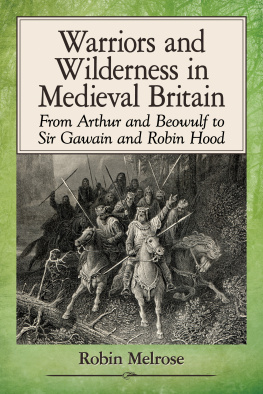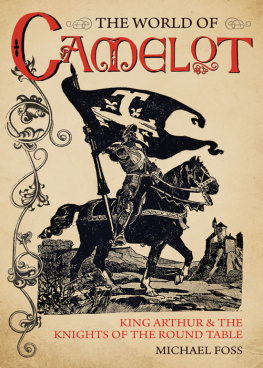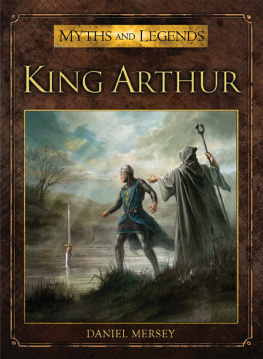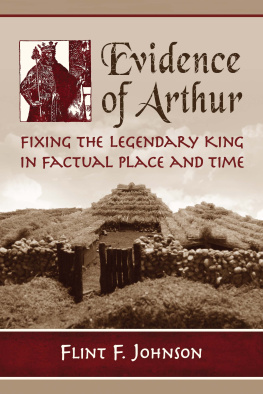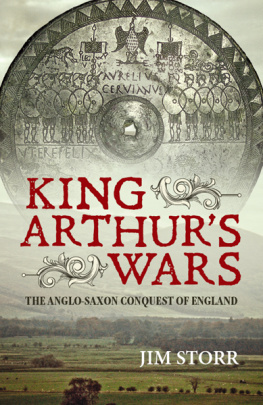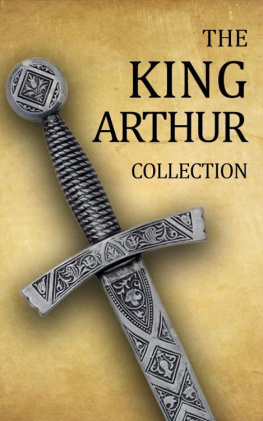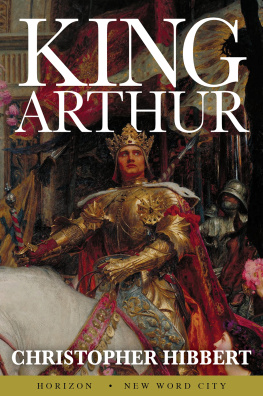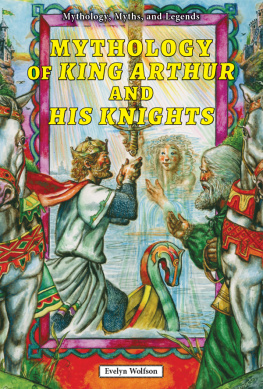WORLDS OF ARTHUR
WORLDS of
ARTHUR
Facts & Fictions of the Dark Ages

GUY HALSALL


Great Clarendon Street, Oxford, OX2 6DP,
United Kingdom
Oxford University Press is a department of the University of Oxford.
It furthers the Universitys objective of excellence in research, scholarship,
and education by publishing worldwide. Oxford is a registered trade mark of
Oxford University Press in the UK and in certain other countries
Guy Halsall 2013
The moral rights of the author have been asserted
First Edition published in 2013
Impression: 1
All rights reserved. No part of this publication may be reproduced, stored in
a retrieval system, or transmitted, in any form or by any means, without the
prior permission in writing of Oxford University Press, or as expressly permitted
by law, by licence or under terms agreed with the appropriate reprographics
rights organization. Enquiries concerning reproduction outside the scope of the
above should be sent to the Rights Department, Oxford University Press, at the address above
You must not circulate this work in any other form
and you must impose this same condition on any acquirer
British Library Cataloguing in Publication Data
Data available
ISBN 9780199658176
Printed in Great Britain by
Clays Ltd, St Ives plc
Links to third party websites are provided by Oxford in good faith and
for information only. Oxford disclaims any responsibility for the materials
contained in any third party website referenced in this work.
In Memoriam
Philip Arthur Rahtz
(19212011)
PREFACE
It is undeniably ironic that, if asked to name a British medieval king, the so-called man in the street will probably come up with one who may well never have existed, or at least one about whom it is impossible to know anything. Yet King Arthur continues to excite fascination. Again ironically, it is the supposed Arthur of History rather than the Arthur of Legend (about whom one can actually say far more) who inspires this interest.
This volume was conceived on a TGV between Montbard and Paris on 28 September 2009. I was reading the latest populist Arthurian history to hit the shelves. Positive reviews in war-gaming magazines suggested that it presented a plausible, scholarly case. It didnt, and this annoyed me. Almost every bookshop in the UK has at least half a shelf of this sort of book about King Arthur. Written by amateur enthusiasts, each reveals a different truth about the lost king of the Britons. All are mutually incompatible but usually based in whole or part upon the same evidence. Each author fanatically believes his version (and the author is usually a he) to be the true story, hushed up by horrid academics or by political conspiracies (usually by the English) or sometimes his rivals. Obviously they cant all be right. In fact none of them is, because, as this book will make clear, none of them can be. Arthur, if he existedand he might have doneis irretrievably lost.
Such books sell, no doubt. Interest in King Arthur is enormous. Yet they sell not because the interested layman necessarily has a vested interest in the argument that King Arthur was Scottish, Cornish, Welsh, or from Warwickshire or even, I suspect, in whether or not he existed. They sell because people believe the misleading claims of these books covers, to reveal the truth or unlock the secret. In other words, they want to know. I could decry the cynicism of publishers who profit from this audiences sincere but ill-informed desire for knowledge and from these authors dishonesty but I am more troubled by the inactivity of my own, historical profession. Why has it done nothing to help this interested lay audience, by propagating the results of the specialist work that disproves any and all claims to have discovered the real Arthur? Why has it not at least made available some insight into how to judge, and see through, the siren claims of the pseudo-histories, as I will refer to non-academic treatments of this period that ignore recent scholarly analyses?
This book responds to this demand. Before going any further, I should confess to being what might be termed a romantic Arthurian agnostic. That is to say that I wish that Arthur had existed but that I must admit that there is no evidenceat any rate none admissible in any serious court of historythat he ever did so. Simultaneously, though, I also concede that it is impossible to prove for sure that he didnt exist, that one cannot demonstrate for sure that there is no fire behind the smoke of later myth and legend. If that sounds too wishy-washy, I will argue that this is the only attitude that can seriously be held concerning the historicity of the once and future king.
The book is divided into four parts, or Worlds of Arthur. this book explain why you should not waste money on any of the numerous volumes claiming to have solved the riddle of Arthur or which include phrases like the true story or the secret revealed in their titles.
shows the ways in which excavated data have been reconsidered and are (sometimes at least) used in somewhat different ways from those that were common in the nineteenth and first three quarters of the twentieth centuries. By the end of this part, you will see that in 2012, in many ways, we know far less about fifth- and sixth-century British history than we did in 1975. The third part, Mad Worlds, rounds off the survey of the current state of play by taking you through some common arguments presented in the pseudo-histories to try and avoid the lessons of modern scholarly criticism. It also contains a not-entirely-serious look at some misleading red herrings about the historical Arthur.
These first three parts, or worlds, will give you a grounding in the evidence available for the study of post-imperial Britain, its problems, and how scholars treat it today. They provide a tool kit to help the interested reader evaluate the claims made in the pseudo-histories. , New Worlds?, I set out my own reading of the evidence. It doesnt claim to represent the truth; it is up front about being a personal view, not currently held by many people, and frequently controversial. It contains precious few facts, being about frameworks and interpretations. I hope that this part of the book will be of interest and value to specialists but I firmly believe, too, that new scholarly ideas should be available to the interested audience outside academia. That audience should not have to wait years for those ideas to be accepted, to become the consensus view, and then be filtered down through populist volumes and TV programmes. By the time that happens, the academic view has usually moved on. Therefore, although of necessity quite technical in places, I have endeavoured to make it as accessible as possible to an intelligent non-specialist.
archaeology between the fourth century and the seventh. This allows me to stand outside these debates and look at them in a different and, I hope, more helpful perspective. I will suggest somequite radical directions for future, critically informed work that might, in turn, help us build a new and different World of Arthur.
I have not wanted to bog the non-specialist reader down with footnotes; academic readers will usually know where the information comes from anyway. Instead, I have included a long, chapter-by-chapter essay on further reading, and a bibliography. The further reading essay suggests background reading as well as referring to the technical pieces whence I have taken specific points and arguments. Debts of this kind are acknowledged here rather than in the usual scholarly apparatus.
Next page

